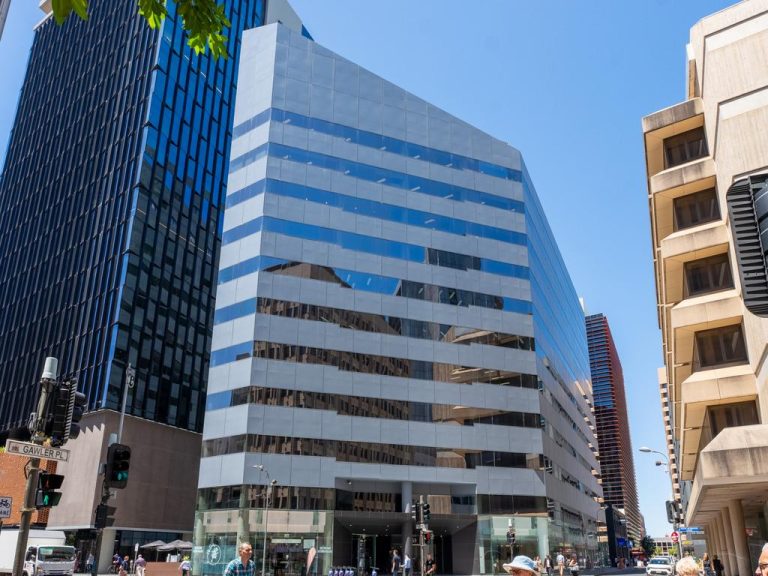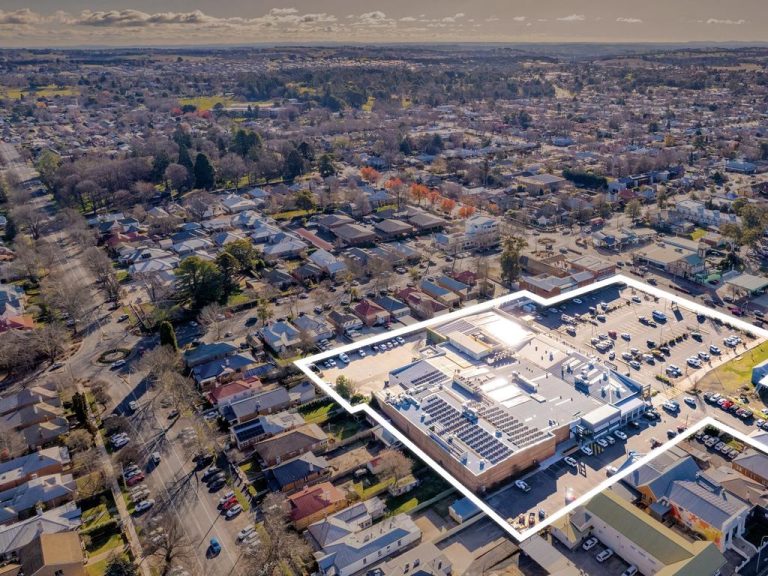Atlassian futurist Dom Price says working in-house helps trigger exciting ideas

Atlassian co-founders Mike Cannon-Brookes and Scott Farquhar with Dom Price at Summit in Las Vegas. Picture: Supplied
When Atlassian futurist Dom Price flew his team into Australia earlier this year for an off-site, the first thing they did was put on their trainers and go for a walk around the city.
And when they got back to Atlassian’s George Street office, the next thing they did was argue.
It wasn’t the kind that leaves a team upset or logging off for the day. In fact, it was actually kind of planned.
The Australian technology giant’s futurist said the team used the time to get disagreements off their chest and to bring up minor conflicts that were never quite settled online over Slack. And that’s one of the reasons the office still has a place in an increasingly digital world and workforce, he says, where the majority of office workers can do the same role they’ve done for years in the office in the comfort of their own home.
“We had a really good argument that day and put it all out on the whiteboard, and that enabled us to produce some really good stuff,” he said.
“That friction creates sparks that create some amazing ideas. If we hadn’t had that walk, we wouldn’t have trusted each other to have those (tougher) conversations.”
The walk before staff went into the office, Mr Price said, was a way for people to get to each other and share little bits of information about their lives.
That connection formed, while once seen as unimportant, goes a long way to improving the productivity of a workforce in 2023.
When relationships are a little more personal, he said, colleagues tend to be a little patient and empathetic to each other as they sometimes see what is happening in a person’s life outside of work.
“That conversation would have been really polite (if not for the walk) and we’ve all been in situations where everyone pretends to agree and then leaves and goes as a waste of time,” he said.
Debating and deeper discussion on sometimes uncomfortable topics are among the many reasons the office still has a place in society today, said the man who the technology behemoth has on staff to predict the future.
“(When we planned that particular off-site), we worked out what were the conversations we had to have live because they would have been different in person. They were all areas of tension,” Mr Price said.
About 76 per cent of staff made their way into the office of the technology behemoth last quarter, a figure the company appears to be quite proud of.
Those workers made their way in despite the company’s work from anywhere policy, which doesn’t require staff to come in.

Atlassian co-founders Mike Cannon-Brookes and Scott Farquhar with Dom Price at Summit in Las Vegas. Picture: Supplied
On flexible workplace policies, Mr Price said Atlassian believed true flexibility was not just allowing workers to divide their time between the office and home as part of a hybrid model, but rather the workday itself was flexibility.
Workers should be allowed to take extended lunch breaks to go for a surf or join a fitness class during the day, he said. “I don’t know, but I don’t think there’s a single Atlassian employee that works 9am to 5pm. I’d be very surprised if there was a single employee that did.”
His own schedule was a “strange example” of that, with his first call with US colleagues starting about 7am.
“After that call, I then took an hour out, took the kids out for a walk to the park and grabbed a coffee and felt absolutely no guilt whatsoever,” he said.
That same day, he took a call at 8pm. “I’m not working crazy hours across the week, but my hours look crazy because they look sporadic. But actually it’s this balance of going, ‘I have life stuff to get done, and work stuff’,” he said.
Different workers thrived in different environments, and Atlassian was experimenting with the ways in which to create those spaces.
Mr Price had a similar view when it came to communicating online, reserving some conversations for Slack, email and others for WhatsApp.
While not an official company police, Mr Price said he reserved the use of WhatsApp for urgent messages while Slack was for conversation and emails were for things that were a little more serious.
There was also a lot of value in bumping into colleagues in the office and being able to have lunch together, Mr Price said.







